 |
|
|
| View this newsletter online |
 |
Research School for Socio-Economic and
Natural Sciences of the Environment |
| SENSE e-News |
|
|
  |
Newsletter January 2023
10 January 2023 |
|
 |
| • |
Sea turtles in a landscape of fear ›› |
| • |
A more sustainable and resilient financial sector: lessons learned from a Science Practice Lab - by Thijs Endendijk ›› |
| • |
Making an Impact! Increasing the relevance of research through science-society interaction, 13-14 February 2023 ›› |
| • |
Introduction to Open Science – Concepts, benefits, and practices, 20-24 February 2023 ›› |
| • |
Bioinformatics with Linux and Python, 20 February - 3 March 2023 ›› |
| • |
Grasping Sustainability: the context and potential impact of your research, 13-17 March 2023 ›› |
| • |
A1 SENSE Introduction Course, 28-29 March 2023 ›› |
| • |
Overview of PhD / postdoc courses January - February 2023 ›› |
| • |
Overview of recently announced PhD / postdoc courses ›› |
| • |
NCGG9 Ninth International Symposium on Non-CO2 Greenhouse Gases: Identify game changers and verify impact, 21-23 June 2023, Amsterdam - Deadline call for abstracts: 15 Jan 2023 ›› |
| • |
Pathways to Sustainability Conference 2023: See the future, 4 April 2023 ›› |
| • |
Pint of Science Festival, 22-24 May 2023 ›› |
| • |
Overview of upcoming events January - February 2023 ›› |
| • |
Overview of recently announced events ›› |
| • |
Overview of PhD graduations January 2023 ›› |
| • |
Call for organisors and scientists for Pint of Science (next edition: 22-24 May 2023) ›› |
| • |
Call SENSE Course Development (deadline: 31 May 2022) ›› |
| • |
Overview job vacancies ›› |
|
|
|
 |
 |
 |
| Editorial |
 |
| Wishes, fantasies and science |
This is the season of good wishes, hope and dreams. Last month I read a news item on the WUR website about the role of political fantasies and wishful thinking during international conferences on topics such as climate and biodiversity ("The role of political fantasies during the Biodiversity Summit" by Jelle Behagel). Jelle Behagel is an associate professor (not SENSE) who works among other things with serious gaming to help students better understand the intricacies of negotiations. In the article he observes how rational arguments may not help to convince others, but that an appeal to their emotions might, which requires a good narrative. Those appealing narratives may sometimes lack a sound scientific basis.
Another article I read was in my Dutch newspaper NRC, discussing the peak in methane emissions in the warm and wet year 2020. The article argues among other things, that less and cleaner traffic contributed to the methane peak, because less emission of NOx by traffic leads to less ozone formation, while ozone plays a role in the breakdown of methane. This was a complex and fascinating message to me, stressing once more how complex real life systems are. My first emotional response was: "So maybe we should continue driving fossil fuel cars to reduce methane levels?"
Both articles show that it sometimes difficult to do justice to scientific facts and at the same time have a clear and appealing narrative. The solution to environmental problems obviously needs both, which makes me happy that SENSE includes both socio-economic and natural sciences and that transdisciplinary research gets more and more attention within SENSE, including societal partners in scientific research.
A clear example of the contribution of social sciences and the inclusion of societal partners is described by Thijs Endendijk in the blogpost he wrote about his SENSE A2 project: "A more sustainable and resilient financial sector: lessons learned from a Science Practice Lab". Only one day after I published this blog on the SENSE website, I read a newspaper article about the same issue: "Onderzoek naar invoering verplicht waterlabel voor woningen". A clear example of SENSE research that contributes to a very topical societal issue.
 If you yourself have a nice project or opinion you want to share with the SENSE community, be it your A2 project or something else, do not hesitate to mail me about it! If you yourself have a nice project or opinion you want to share with the SENSE community, be it your A2 project or something else, do not hesitate to mail me about it!
I wish all of you a very hopeful, imaginative and fantastic 2023!
Marjolijn Dannenburg, Communication officer
|
|
|
 |
| SENSE News |
 |
| Sea turtles in a landscape of fear |
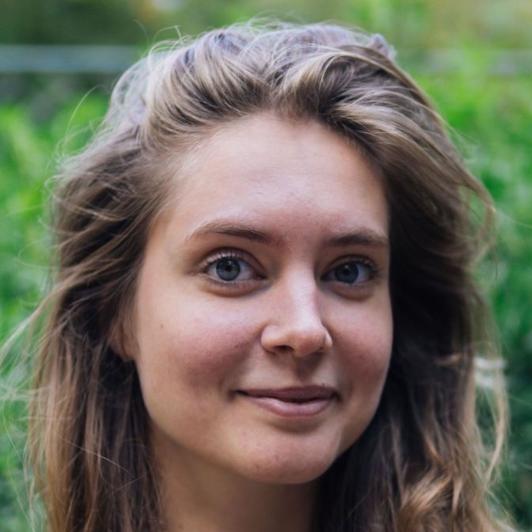 Many sea turtles live their adult lives in predator-free environments due to overfishing of their main predator, the tiger shark. Because of this, it is largely unknown how sharks impact turtle grazing behaviour. Wageningen researchers have discovered how turtles change their grazing behaviour when they feel safe, and as a result increase their grazing pressure on seagrass meadows.’ Many sea turtles live their adult lives in predator-free environments due to overfishing of their main predator, the tiger shark. Because of this, it is largely unknown how sharks impact turtle grazing behaviour. Wageningen researchers have discovered how turtles change their grazing behaviour when they feel safe, and as a result increase their grazing pressure on seagrass meadows.’ |
|
|
| SENSE A2 project report |
 |
| A more sustainable and resilient financial sector: lessons learned from a Science Practice Lab - by Thijs Endendijk |
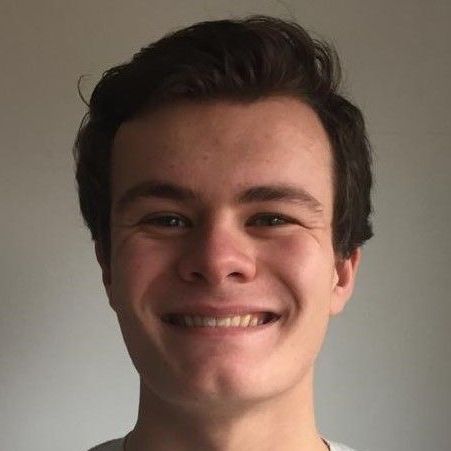 The financial sector can no longer ignore climate impacts, as reporting requirements are being tightened. According to EU regulation, a financial party must disclose climate impacts they are expecting or currently facing. However, financial parties often find themselves struggling with finding a correct approach to assess and report risks from climate extremes, such as floods, droughts and heat stress. For this reason, a workshop has been organized by Climate Adaptation Services (CAS) in cooperation with the Institute for Environmental Studies (IVM) from VU Amsterdam and pension investor APG as part of the REACHOUT project. This sparked a knowledge exchange between financial institutions and scientists. The financial sector can no longer ignore climate impacts, as reporting requirements are being tightened. According to EU regulation, a financial party must disclose climate impacts they are expecting or currently facing. However, financial parties often find themselves struggling with finding a correct approach to assess and report risks from climate extremes, such as floods, droughts and heat stress. For this reason, a workshop has been organized by Climate Adaptation Services (CAS) in cooperation with the Institute for Environmental Studies (IVM) from VU Amsterdam and pension investor APG as part of the REACHOUT project. This sparked a knowledge exchange between financial institutions and scientists. |
|
|
|
 |
 |
|
 |
 |
| Upcoming courses and discussion groups |
 |
| Making an Impact! Increasing the relevance of research through science-society interaction, 13-14 February 2023 |
| This course is focused on making a plan of action. You will discover how fundamental research can be combined with societal impact in various ways without a single-best option. You will have the opportunity to reflect on the impact of your own work, learn from other PhD candidates and other researchers working at the interface of research, policy and society. |
|
|
| Introduction to Open Science – Concepts, benefits, and practices, 20-24 February 2023 |
| A key goal of science is to help society solve today’s wicked challenges. This requires require reliable, trustworthy, and high-quality research. Open Science (OS) strongly contributes to achieving these requirements since it aims to make research more verifiable, transparent, and reusable. This course aims to provide a conceptual and a practical overview of OS principles. |
|
|
| Bioinformatics with Linux and Python, 20 February - 3 March 2023 |
| Linux and Python, a dynamic, readable programming language, is a popular combination for all types of bioinformatics work, from simple one-off scripts to large, complex software projects. This workshop is aimed at complete beginners and assumes no prior programming experience. |
|
|
| Grasping Sustainability: the context and potential impact of your research, 13-17 March 2023 |
| To date, many different scientific concepts and approaches of sustainability exist. What are the differences and what do they entail? What is your role as a scientist in achieving sustainable development? How can you apply sustainability in your own research? And in doing so, how can you deal with facts, uncertainty, values and opinions? This course will enable you to think about the ‘bigger picture’, grasp sustainability and to apply concepts and approaches to your own research, in a collaborative learning environment. To ensure that the content of the course is aligned to your own research, the content of the course will also be determined by the research topics of the participants. |
|
|
| A1 SENSE Introduction Course, 28-29 March 2023 |
| This course brings together PhD candidates that have the ambition to work on environmental issues, and who have just started their journey within SENSE.During the course, you will discuss the need for interdisciplinary research and start to think about what role you would like to play as a scientist in solving environmental issues. The course will also be part introduction to personal leadership, exploring what is important to you, and hence talking about how to tackle any potential challenges you may face along the way. And you will meet other PhD candidates with which you will share a lot of the same experiences with. |
|
|
| Overview of PhD / postdoc courses January - February 2023 |
- Basic Statistics
16-24 January 2023, Wageningen campus
- Philosophy and Ethics of Food Science and Technology
19 January - 23 February 2023
- Ecotoxicology
23 January - 23 February 2023, Amsterdam & Wageningen
- Advanced Organic Chemistry (NEW)
30 January - 17 April 2023, Wageningen
- Essentials of Modelling
6-17 February 2023, Wageningen campus
- Introduction to R and R Studio
6-17 February 2023, Wageningen campus
- MOOC: Co-creating sustainable cities
7 February - 8 August 2023, online
- Advanced Proteomics
7-10 February 2023, Wageningen
- Ethics for Social Sciences Research (NEW)
7 February 2023, Wageningen
- Introduction to R (NEW)
13-14 February 2023, Wageningen
- Multivariate Analysis
14-21 February 2023, Wageningen
- Academic Publication and Presentation in the Social Sciences
20 February - 16 March 2023, Wageningen
- Bioinformatics with Linux and Python
20 February - 3 March 2023, Wageningen
- Transformative and participatory qualitative research approaches and methods
20 February - 17 March 2023
- Systematic approaches to reviewing literature
21 February - 21 March 2023
- Gender and Diversity in the Life Sciences Domains
21 February - 16 March 2023, Wageningen
- The Choice: Un-box your PhD process & take charge of your performance (NEW)
23 February - 13 April 2023, Wageningen
- Institutions and Societal Transformation
24 February - 17 March 2023, Wageningen
- Applied statistics
27 February - 2 March 2023
|
|
|
| Overview of recently announced PhD / postdoc courses |
- Tidy data transformation and visualization with R
14-24 March 2023, Online
- Geocomputation & Machine Learning for environmental applications (intermediate level)
28 March – 16 June 2023, online and Italy
- The Natures of Life and Death: Political Ecologies of Collapse, Transformation and Revival
3-7 April 2023, Wageningen
- Genome Assembly
20-21 April 2023, Wageningen
- WaterCampus Business Challenge
8-12 May 2023, Leeuwarden
- Citizen Science for Water Management and Sustainable Development
15-26 May 2023, Delft
- Deep Learning for Image Analysis
5-9 June 2023, Germany
- BioBusiness Summer School
19-23 June 2023, Amsterdam
- Summer school Risk Analysis and Risk Management in Agriculture: Updates on Modelling and Applications
3-7 July 2023, Wageningen
- BCF Grant Application Course
10-11 October 2023, online
- Advanced Course Bioprocess Design
30 October – 3 November 2023, Delft or online
In case you are interested in either participating or teaching a course that is currently not in the programme, please do not hesitate and contact us with your suggestions. |
|
|
|
 |
 |
|
 |
 |
| Upcoming Events |
 |
| NCGG9 Ninth International Symposium on Non-CO2 Greenhouse Gases: Identify game changers and verify impact, 21-23 June 2023, Amsterdam - Deadline call for abstracts: 15 Jan 2023 |
 Non-CO2 greenhouse gases include many substances, such as methane (CH4), nitrous oxide (N2O), fluorocarbons (CFCs, HFCs, SF6, etc), black carbon, aerosols, and tropospheric ozone (O3). These contribute significantly to climate forcing. Reducing non-CO2 greenhouse gas emissions is often more cost-effective than reducing CO2 emissions. Non-CO2 greenhouse gases include many substances, such as methane (CH4), nitrous oxide (N2O), fluorocarbons (CFCs, HFCs, SF6, etc), black carbon, aerosols, and tropospheric ozone (O3). These contribute significantly to climate forcing. Reducing non-CO2 greenhouse gas emissions is often more cost-effective than reducing CO2 emissions.
The importance of this conference is increasing every new event as our window for action in the climate dossier is closing rapidly. Fortunately public awareness that we need to act now is growing. With that awareness “game changers“ are proposed that need scientific evaluation to distinguish realistic and valuable concepts from what is known in The Netherlands as “ride a bike in the sky” ideas. |
|
|
| Pathways to Sustainability Conference 2023: See the future, 4 April 2023 |
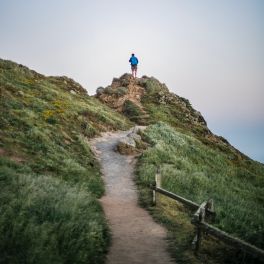 Taking the year 2060 as our point of arrival, we get new insights into the challenges of transformation, the big shifts that we must consider if we think about sustainability in terms of forty years or more. Together we look back, piece together and learn. What do the changes that we were able to bring about look like? What/who were the crucial triggers for this transformation? And did we (or better: who did) see them coming in 2023? Taking the year 2060 as our point of arrival, we get new insights into the challenges of transformation, the big shifts that we must consider if we think about sustainability in terms of forty years or more. Together we look back, piece together and learn. What do the changes that we were able to bring about look like? What/who were the crucial triggers for this transformation? And did we (or better: who did) see them coming in 2023? |
|
|
| Pint of Science Festival, 22-24 May 2023 |
We maken ons klaar voor #pint23! Wil je meedoen?
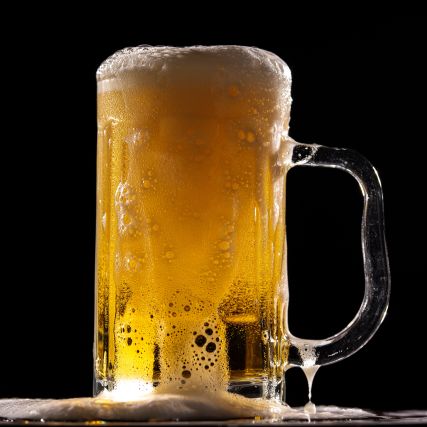 Het Pint of Science festival vindt jaarlijks plaats in mei. Het brengt onderzoekers naar de kroeg bij jou om de hoek, waar ze je vertellen over het laatste nieuws uit hun wetenschappelijke wereld. Het Pint of Science festival vindt jaarlijks plaats in mei. Het brengt onderzoekers naar de kroeg bij jou om de hoek, waar ze je vertellen over het laatste nieuws uit hun wetenschappelijke wereld.
Het Pint of Science festival is een internationaal festival wat dit jaar in 25+ landen tegelijkertijd wordt georganiseerd. Dit festival is de perfecte kans om de onderzoekers te ontmoeten die bezig zijn met de wetenschap van morgen. |
|
|
| Overview of upcoming events January - February 2023 |
|
|
|
|
| Overview of recently announced events |
|
|
|
|
| Upcoming PhD graduations |
 |
| Overview of PhD graduations January 2023 |
- Koen van Gijn
The BO3 process for removal of micropollutants from wastewater treatment plant effluent
13 January 2023, Wageningen University, Environmental Technology
- Suzanne van der Meulen
Functional quality of urban surface water
17 January 2023, Wageningen University, Environmental Technology
- Ilan Havinga
Crowdsourced data and machine learning to measure cultural ecosystem services
18 January 2023, Wageningen University, Environmental Systems Analysis
- Hassnain Shah
Coping with Climate Risks in Crop Production in the Indus Basin, Pakistan
20 January 2023, Wageningen University, Water Resource Management
- Jinsong Wang
Removal of organic micropollutants from drinking water in rapid sand filters
20 January 2023, Wageningen University, Environmental Technology
- Natalia Uribe Rivera
Spatio-temperal multi-objective optimization of agricultural best management practices
25 January 2023, IHE Delft, Hydroinformatics and Socio-Technical Innovation
- Juan Gallego Zamorano
Integrating local context in global biodiversity assessments
27 January 2023, Radboud University, Environmental Science
- Sanne de Smit
Strategies for hydrogen evolution catalyst integration in microbial electrosynthesis
3 February 2023, Wageningen University, Environmental Technology
|
|
|
|
 |
 |
|
 |
 |
| Calls |
 |
| Call for organisors and scientists for Pint of Science (next edition: 22-24 May 2023) |
Our organization is run by volunteers who help out to organize Pint of Science events in their city. We are currently setting up & expanding teams in Amsterdam, Delft, Eindhoven, Groningen, Leiden, Maastricht, Nijmegen, Rotterdam, Utrecht & Wageningen. These teams can use your help! Furthermore, we are looking for additional members to help with the central coordination of all events and volunteers in The Netherlands. And last but not least: we are always looking for speakers who want to share their science at our events.
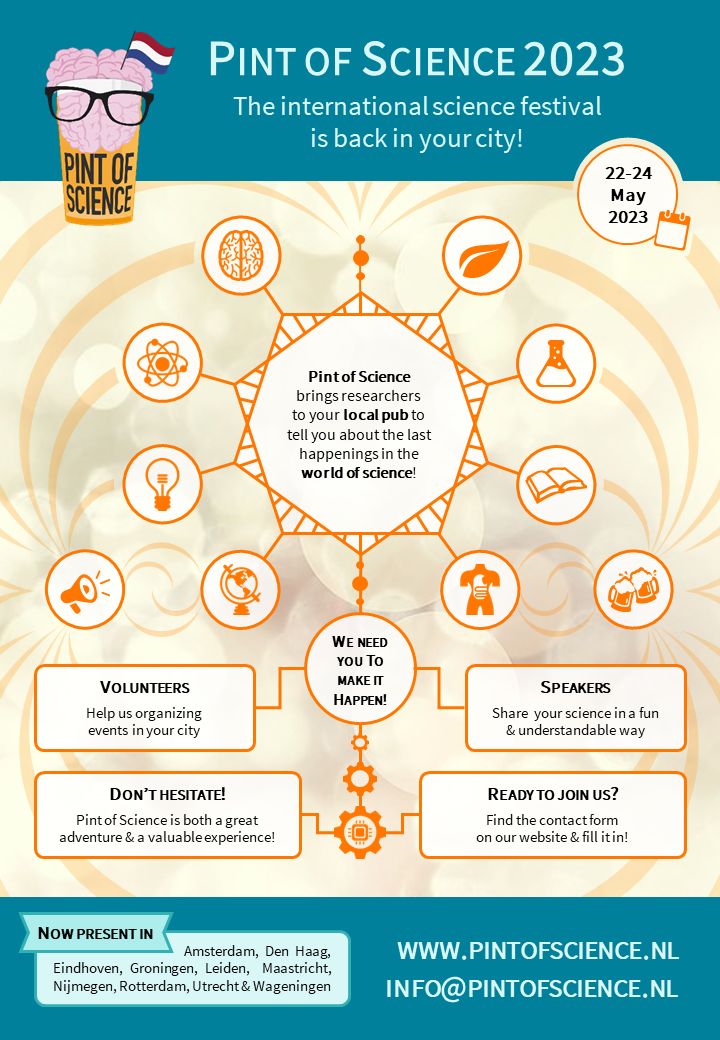
If you are a dynamic, open-minded and creative person willing to take an active role in bringing understandable and fun science to the general public, we are looking forward to hearing from you!! info@pintofcience.nl |
|
|
| Call SENSE Course Development (deadline: 31 May 2023) |
| To support the development of new courses and the collaboration between members, SENSE allocated an annual fund of 20.000 euros to support course development. Each proposal can apply for a maximum of 4.500 euro. Applications are open to all SENSE member institutes. |
|
|
 |
| Job vacancies |
 |
| Overview of vacancies at SENSE partners |
- Assistant Professor on Artificial Intelligence in environmental politics, Wageningen University
Apply before 11 January 2023
- Assistant Professor Geo-Environmental Data Science, Utrecht University
Apply before 13 January 2023
- Assistant or Associate Professor in Land Remote Sensing, Wageningen University
Apply before 17 January 2023
- PhD Using atmospheric oxygen to unravel biosphere CO2 exchange, Wageningen University
Apply before 21 January 2023
- Directeur Faculteit Geowetenschappen, Utrecht University
Apply before 22 January 2023
- Appointment of Chair in Transformative Sustainability Governance, Utrecht University
Apply before 23 January 2023
- Lecturer in data-driven decision making for sustainable technical transitions of urban space, Wageningen University
Apply before 28 January 2023
- Professor of Hydroinformatics, Head of Research Group, IHE Delft
Apply before 31 January 2023
- Lecturer in Water Treatment/Disinfection, IHE Delft
Apply before 31 January 2023
- Assistant or Associate Professor in the field of Atmospheric Physics Tenure Track, Wageningen University
Apply before 31 January 2023
- PhD position Synergies & Trade-offs between the Impacts of Land Use on Sustainable Development Goals, Utrecht University
Apply before 10 February 2023
- Postdoc in Water Resource Modelling for a Future with Sustainable Water Use, Utrecht University
Apply before 28 February 2023
|
|
|
| Other vacancies in the SENSE field |
|
|
|
|
| More vacancies |
| During the month new vacancies are regularly posted on the SENSE vacancy page. |
|
|
|
 |
 |
|
 |
|